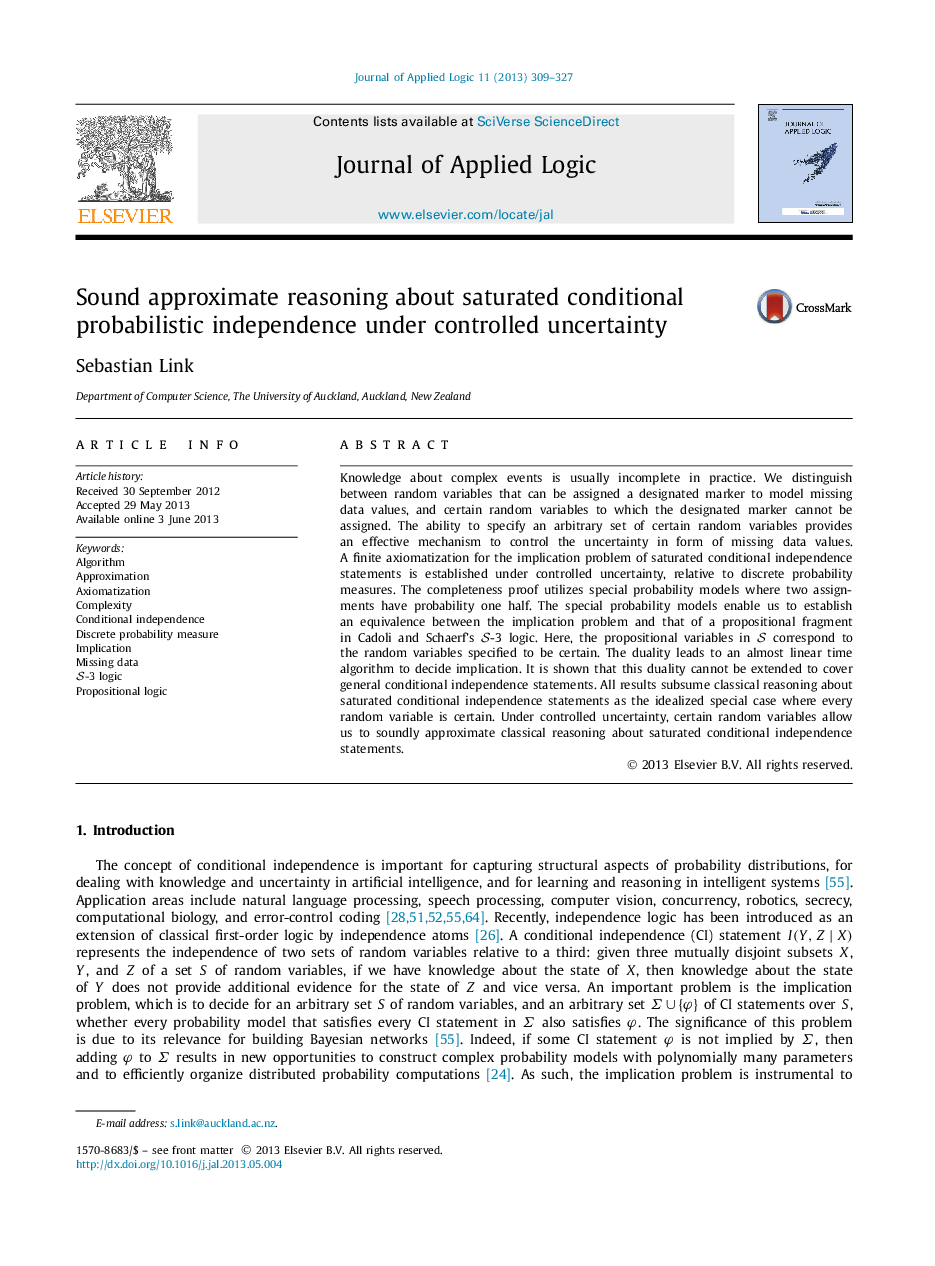| Article ID | Journal | Published Year | Pages | File Type |
|---|---|---|---|---|
| 4662903 | Journal of Applied Logic | 2013 | 19 Pages |
Abstract
Knowledge about complex events is usually incomplete in practice. We distinguish between random variables that can be assigned a designated marker to model missing data values, and certain random variables to which the designated marker cannot be assigned. The ability to specify an arbitrary set of certain random variables provides an effective mechanism to control the uncertainty in form of missing data values. A finite axiomatization for the implication problem of saturated conditional independence statements is established under controlled uncertainty, relative to discrete probability measures. The completeness proof utilizes special probability models where two assignments have probability one half. The special probability models enable us to establish an equivalence between the implication problem and that of a propositional fragment in Cadoli and Schaerfʼs S-3 logic. Here, the propositional variables in S correspond to the random variables specified to be certain. The duality leads to an almost linear time algorithm to decide implication. It is shown that this duality cannot be extended to cover general conditional independence statements. All results subsume classical reasoning about saturated conditional independence statements as the idealized special case where every random variable is certain. Under controlled uncertainty, certain random variables allow us to soundly approximate classical reasoning about saturated conditional independence statements.
Keywords
Related Topics
Physical Sciences and Engineering
Mathematics
Logic
Authors
Sebastian Link,
